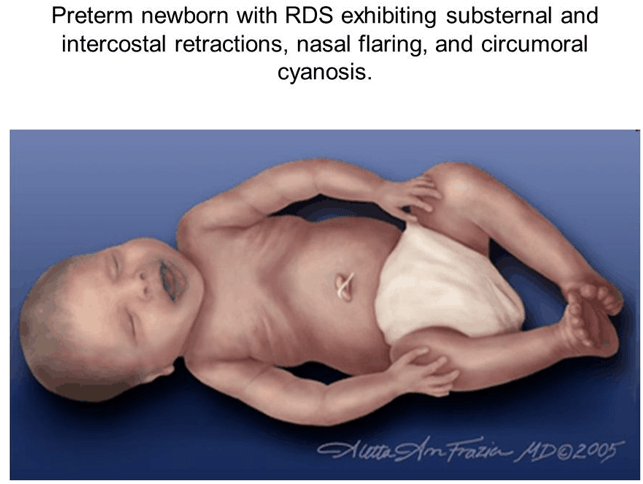The practical nurse (PN) is providing care for a client who is ordered nothing by mouth (NPO) after a small bowel resection. The client's nasogastric (NG) tube is connected to low intermitent suction. The client reports dizziness and tingling in digits.
Which assessment finding by the PN should be reported to the healthcare provider?
Hyperactive bowel sounds on assessment.
Heart rate of 90 beats per minute with premature ventricular contractions (PVCs) noted on telemetry.
Hypoactive bowel sounds on assessment
Regular heart rate of 100 beats per minute on telemetry
The Correct Answer is B
Nursing Test Bank
Naxlex Comprehensive Predictor Exams
Related Questions
Correct Answer is A
Explanation
Circumoral cyanosis is a bluish discoloration around the mouth that indicates inadequate oxygenation. It is an abnormal finding in a full-term newborn and requires immediate assessment and intervention by the PN.
The other options are not correct because:
- A positive Babinski's reflex is a normal finding in newborns that indicates intact neurological function. It is elicited by stroking the sole of the foot and observing the fanning of the toes.
- A negative Ortolani's sign is a normal finding in newborns that indicates no hip dislocation or dysplasia. It is elicited by abducting the hips and feeling for any clicking or clunking sensation.
- A large sacral "stork bite" is a common benign birthmark that appears as a reddish patch on the lower back or nape of the neck. It usually fades within the first year of life and does not require any treatment.

Correct Answer is D
Explanation
The correct answer is choice D. Don non-sterile gloves when performing direct care.
Choice A rationale:
Placing a surgical mask on the client during transport is not necessary for preventing the spread of Clostridium difficile. C. difficile is primarily spread through contact with contaminated surfaces and not through airborne transmission.
Choice B rationale:
Keeping the door closed to the client’s room at all times is not required for C. difficile infection. The focus should be on contact precautions rather than airborne precautions.
Choice C rationale:
Wearing a particulate respirator mask is not needed for C. difficile, as it is not an airborne pathogen. Standard contact precautions are sufficient.
Choice D rationale:
Donning non-sterile gloves when performing direct care is essential to prevent the spread of C. difficile. The spores can be transmitted via the hands of healthcare workers, so wearing gloves helps to minimize this risk.
Whether you are a student looking to ace your exams or a practicing nurse seeking to enhance your expertise , our nursing education contents will empower you with the confidence and competence to make a difference in the lives of patients and become a respected leader in the healthcare field.
Visit Naxlex, invest in your future and unlock endless possibilities with our unparalleled nursing education contents today
Report Wrong Answer on the Current Question
Do you disagree with the answer? If yes, what is your expected answer? Explain.
Kindly be descriptive with the issue you are facing.
